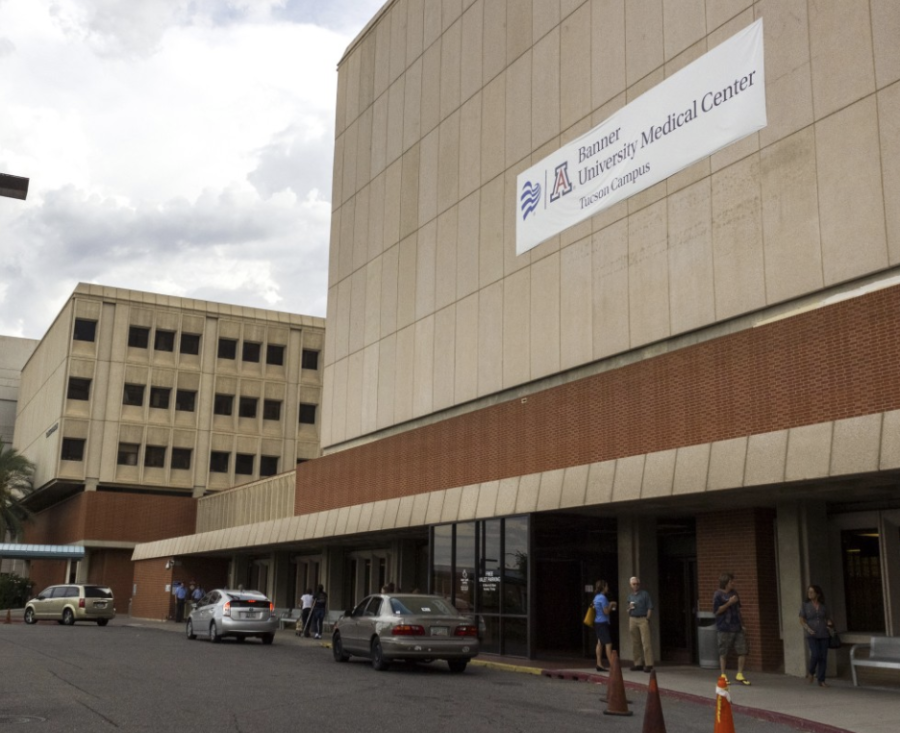During the last decade, there has been a strong initiative by medical schools around the nation to integrate medical humanities into their curriculum. This movement seeks to train resilient medical students with holistic approaches that will better address the complexities of healing diverse patients.
The University of Arizona College of Medicine — Tucson has made its mission to be in the forefront of this movement. At UACOM-T, the Medical Humanities Program provides students with enrichment electives that serve as “a journey through medical humanities in order to learn and practice the tools that will aid [students] in becoming more compassionate and empathic physicians.”
This academic year the “Healer’s Art” elective has been a favorite amongst students. The purpose of this course is to “allow students to explore areas not fully addressed in the curriculum and feel connected to the real reasons for becoming a physician,” said Dr. Patricia Lebensohn, professor of Family and Community Medicine and director of the Healer’s Art elective.
During each session, students get together to discuss mindfulness, grief, the meaning of service and the awe of medicine. Through these conversations, students share personal stories, beliefs and experiences that have impacted their ongoing journey through the medical profession. These conversations are enhanced by faculty mentors and physicians who contribute their personal experiences and share valuable lessons with students.
“I think it is a precious opportunity to have physician mentors who can share their unique life stories inside and outside of medicine,” said Hannah Korah, a first-year MD/PhD student. “It is truly a humbling experience to see physicians be human beings who are vulnerable and so emotionally strong after everything they have gone through.”
As expected, many of these conversations can be difficult. Students often share how emotional experiences — such as the passing of a loved one or a personal failure — have shaped or continue to shape their lives.
RELATED: Zoom MD: UA first-year medical students begin their virtual education
Rosemarie Turk, a second-year medical student at the UA, is grateful to participate in these conversations.
“I was not quite sure what to expect going into the elective. Now that we are half way through, I feel like I have learned that people carry so much with them in their everyday lives and don’t always have an outlet to express it,” Turk said. “I feel very grateful to gain more perspective through the Healer’s Art elective.”
Another common topic for students is the physical and mental demands of medical education.
“During each session we are able to talk about particularly stressful days in medical school and our mental wellbeing,” said Jarrod Rulney, a first-year medical student. “It is very comforting to know that we all have a common struggle. Everyone is very supportive and eager to help.”
Conversations about mental health have proven especially important. Decades of research has repeatedly shown an increasing rate of burnout, cynicism and anxiety amongst medical students and new practicing physicians.
“Healer’s Art has taken initiative to address the vulnerability of being a medical student and physician,” Korah said. “The emotional toll of what we are dedicating our lives to is often hidden under shadows of textbooks, lectures, and clinical skills. This course teaches me to embrace the struggle, keeps me grounded, and reminds me that I am not alone on this journey.”
By emphasizing the ways medial humanities can improve student wellbeing, UACOM-T hopes to mitigate burnout and mental health concerns early in training. Lebensohn said that she believes that Healer’s Art will serve as an “antidote to the hidden curriculum that over time make students less empathic, more jaded and burned-out.”
Around the nation, similar efforts have shown promising results. A recent study by University of Washington School of Medicine suggests that the integration of humanities education into their medical school curriculum has led to an increase in student performance, well-being and empathy.
The Healer’s Art elective has also served as way for students and faculty to appreciate and share a common passion for the humanities. The intersections between medicine, music and art are frequently explored during each session, adding greater depth to already complex conversations.
Turk explained that cultivating her interest in the humanities will make her a better physician.
“The humanities are important in every aspect of life. They are embedded [in] everyone’s life because, after all, we live a human experience. With such rich and unique experiences and different ways of processing them, the humanities allow us to better understand our patients and one another,” Turk said.
Lebensohn said she shares these sentiments. In her personal life, she reads non-medical fiction, enjoys music and explores cinema. She believes that these interests make her a more complete and compassionate professional.
RELATED: Antiviral drug Remdesivir becomes first approved treatment for COVID-19
“The humanities are an integral part of my role as a physician and how I connect at a human level with [my] patients. They are an important part of my personal and professional life,” Lebensohn added.
Ultimately, renewed interest in medical humanities highlights the need to address curricular gaps that push non-medical courses to the sidelines. Educators around the country recognize that medical students need training beyond the scientific principles of medicine to become competent physicians. Through courses like Healer’s Art, UACOM-T seeks to close this gap in training.
For students like Rulney, Healer’s Art brings a refreshing focus to the humanistic foundations of medicine.
“Courses like Healer’s Art remind me why I wanted to pursue medicine in the first place. At its core, this profession is about connecting with people, understanding their human experiences and collaborating with them to improve their quality of life. Healing is incomplete without a humanistic approach,” Rulney added.
Follow Andres Diaz on Twitter









